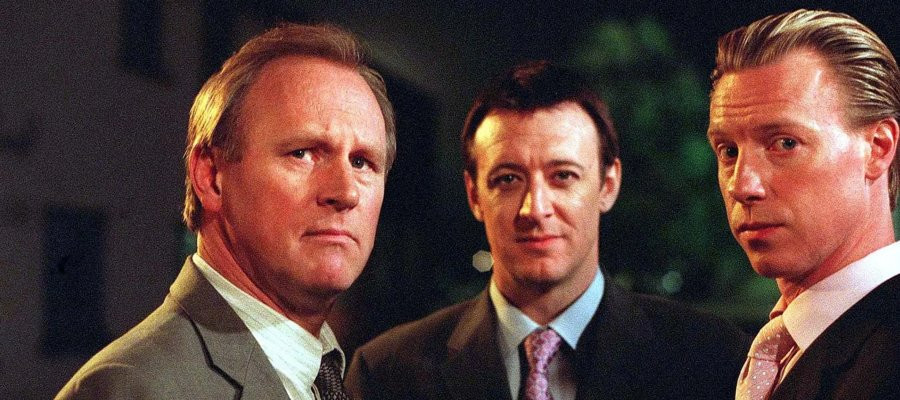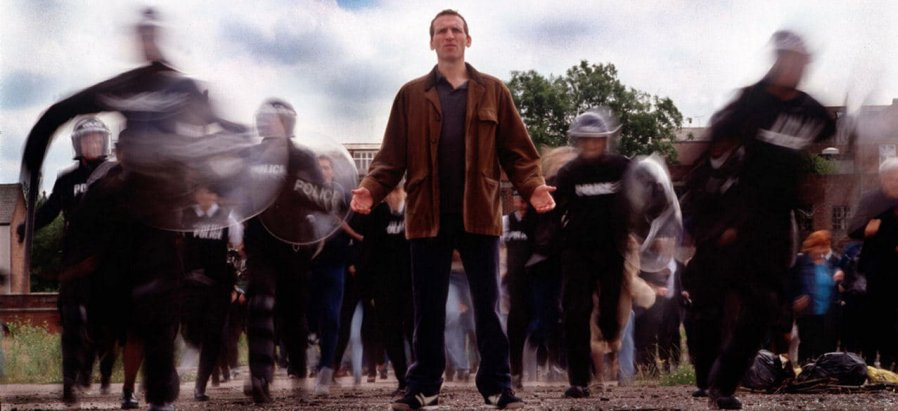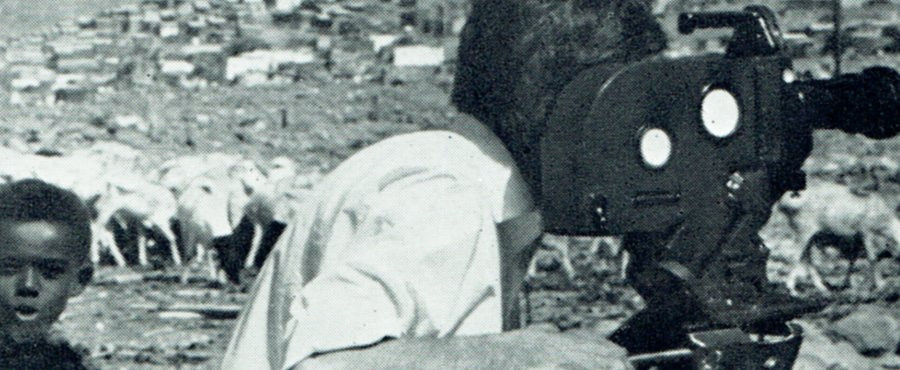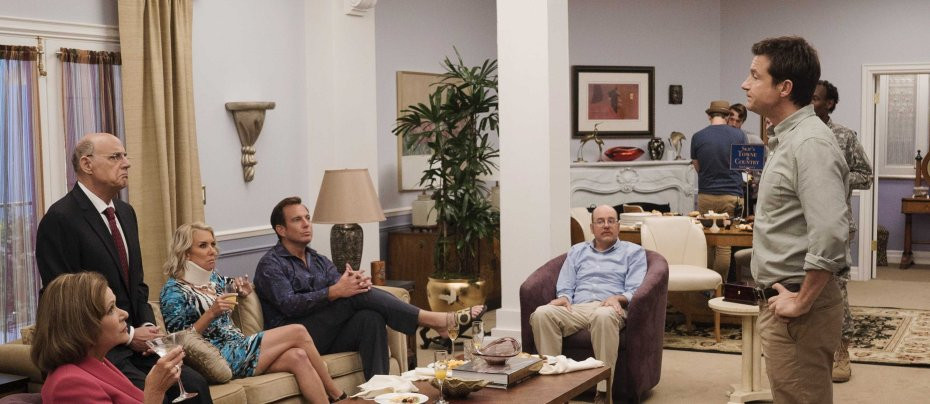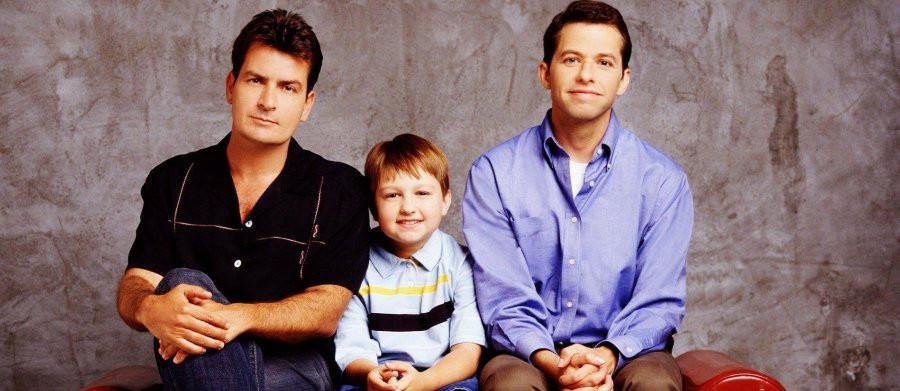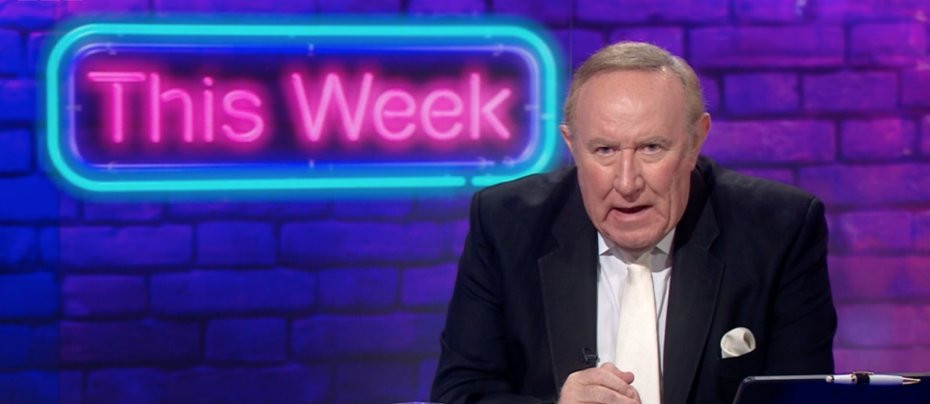
This Week
2003 - United KingdomThis is a review of the BBC Current Affairs programme which ran from 2003 to 2019 and is not to be confused with the Associated-Rediffusion and Thames programme which ran on ITV from 1968-78 & 1986-92.
We keep hearing that political discourse, both in the United Kingdom and the United States, is getting more divisive. Those of us who can remember the 1970s and the early 1980s tend to smile at that. In as much as anyone can be objective, it is fair to say that Britain was fiercely tribal back then, famous for industrial unrest, while America was struggling to cope with the consequences of the Vietnam War and racial politics far more militant than todays. Things were regularly said, done, and proposed, even in the political mainstream, that now sound positively shocking. We really are well mannered compared with how we were.
Then, in the late 1980s and through the 1990s, things seemed to calm down. The Cold War ended surprisingly well. Long periods of conservative rule in the UK and the USA convinced the mainstream Left to take a less strident approach, leading to the electoral success of the nonthreatening Tony Blair and Bill Clinton. A sort of broad consensus developed, at least within the political class, in favour of economic and social liberalism in the literal sense of the word. This lasted until the Crash of 2008 restarted old debates about the economic order, while a strong conservative counteroffensive, using the internet to outflank the mainstream media, restarted the "culture wars" the other side thought it had won. These trends were major factors in the UK's vote to withdraw from the EU and the election of Donald J Trump as President of the United States in 2016, at which point it could no longer be denied that the broad consensus within the political class was not necessarily a reflection of wider public opinion.

The late night British political review 'This Week' was very much a product of the broad consensus. It first aired at the high point of Mr Blair's political ascendancy, just before the Iraq War, and it came to an end in the middle of heated Parliamentary debates over "Brexit" in the Summer of 2019. One can see why the BBC thought it had outlived its time. It seemed too cosy in the changed political context.
The sight of politicians of all parties, together with the journalists who were supposed to be monitoring them, all laughing and joking together, and apparently all at ease with each other (some obviously more than others) as they chatted about the great issues of the day on the comfy 'This Week' sofas seemed the very incarnation of the Establishment. It was always part of the charm of 'This Week' that it seemed like a jolly club to which we were all invited, but by 2019 many in the target audience began to feel excluded from membership.
Yet it has always been part of the British political tradition for MPs of all parties and journalists to socialise together. There is often nothing else to do in long Parliamentary sittings. Professional politicians on different sides often find they have more in common with each other than with the general public. Indeed, they often bond over the difficulties of dealing with constituents. Most share a genuine desire to make the world a better place, even if they disagree about the means. Talking informally enables them to discover what they have in common. It is a very healthy thing to do, psychologically, socially, and, to an extent, politically.
It is not, however, something they want to be seen doing in public. It does not always go down well in their constituencies, especially with the more hard-line members of their own parties, the sort of people who spend a lot of time on important committees, to be perceived as too chummy with "the enemy." One can see that some of the guests on 'This Week' are more guarded than others. Many who wanted to be seen as serious avoided it altogether.
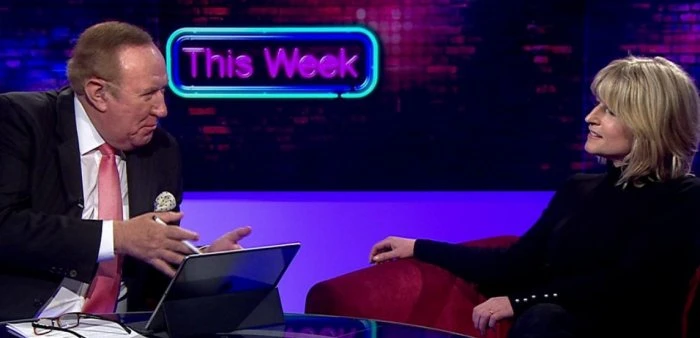
For 'This Week' cultivated an atmosphere of deliberate frivolity. In between segments of political discussion of a higher standard than anywhere else on British television at the time a guest journalist would be invited to present a humorous video "round up of the week." Although some could be a bit heavy handed, others showed that the great tradition of British political satire dating back to the 17th Century was alive and well.
The show developed its own "in-jokes." The conceit emerged that the host and guests went on after filming to Annabel's nightclub. Contributors were given nicknames in the form of "hashtags." The viewers themselves were mocked: who else would be watching a late-night politics show but political obsessives and/or alcoholics? There were frequent references to "Blue Nun," a cheap white wine that was actually considered classy many, many years ago.
If the debate was still very serious, an effort was made to end it on a light-hearted note by bringing in a supposedly non-political guest, often a comic, to discuss a nominally non-political theme that was actually relevant to the week's political events. Some of the guests were more successful than others. The worst contributors were comics who thought they should be politicians for the night and political figures who tried to be comics.

The tone was established by the selection of Andrew Neil as the host. Past Editor of the 'Sunday Times,' he has the reputation of being one of the most formidable journalists of his generation, but his supposedly louche personal life has made him the object of satire - as well as giving a bit of an edge to those jokes about "after parties" in nightclubs. Readers of 'Private Eye,' who are basically the same sort of people who watched 'This Week,' might have wondered if he was really joking.
Although he might disclaim the label, Neil is basically a libertarian, very much a rarity at the BBC. Lacking the conservative's sentimental attachment to tradition and the socialist's obligation to appear compassionate, libertarians tend to pride themselves on being ruthlessly logical. Neil certainly does. Arguably the best political interviewer since Brian Walden, he is the master of the almost casual interjection of the devastating fact into a conversation. A politician's balloon is burst in a moment as all the hot air rushes out. He gives no quarter, even to those on his own side of the political spectrum. He famously caught the quick witted American conservative commentator Ben Shapiro completely off guard, not something that was ever done before. He also bushwhacked a poorly prepared Boris Johnson, who subsequently, and very wisely, made a point of avoiding being interviewed by him in the 2019 General Election campaign.

On 'This Week' Neil had two regular guests or co-hosts, one meant to be vaguely Conservative and the other Labour. Throughout the show's run the former was Michael Portillo. Seen by some as the great hope of the Thatcherite right in the mid 1990s, his loss of his seat in the 1997 Labour landslide, the legendary "Portillo Moment," is cited by many viewers as one of their favourite television moments of all time. After that he reinvented himself, drifting gently leftward in order to build a very successful television career. He has fronted a number of widely praised documentaries and his 'Railway Journeys' are a particular delight. A man once positively hated by millions has become a well loved travel presenter with a charming eccentric style.

While Portillo dumped his official connection with the Conservative Party, his opposite number, Diane Abbott, was a sitting Labour MP. It was felt that she was so far to the left of her party that she was no more an official Labour spokesman than Portillo was a Conservative one.
That changed as the Labour Party began to move in her direction, so that she went from being a fringe figure to a member of the Shadow Front Bench and then the Shadow Cabinet. The frank assessments that had made her contributions so interesting and entertaining were no longer possible when she was obliged to follow the party line. Her appearances became less frequent and eventually ceased altogether - even if she remained the target of Neil's brutal jokes about her political career. She was never officially replaced. Different Labour figures took her place on the sofa each week. Some were better than others: none had the completely uncensored honesty of the early Abbott, or her chemistry with Portillo, whom she had known for years (they went to the same school and University, rather confirming the view many had of the political class, and apparently were once in the same play together - as the Macduffs). By far the best was Alan Johnson, once the ultimate insider in the Labour Party but increasingly semi-detached from it as it moved in Abbott's direction. A genuine working class Labour man, without the alleged benefits of a university education, he was something of a breath of fresh air. Despite his differences with Neil and Portillo, he seemed relaxed and at ease with them. Blessed with the gift of delivering a telling phrase, he became the most frequent Abbott substitute and the most welcome.

Representatives of other parties sometimes joined the regulars, but they rarely looked comfortable. It was obvious that they did not feel part of the club and their jollity often seemed forced. Miranda Green, who had been Press Secretary to Lord Ashdown, was a notable exception - "She's Lovely" said the caption under her name - as was the late Charles Kennedy, who always knew what was expected in this sort of format and delivered it.
Usually broadcast just after 'Question Time,' with its unpredictable audience participation and high emotion, 'This Week' was offered as a bit of light relief for politics junkies before going to bed. Yet, away from party slogans and briefing notes, the quality of the discussion on 'This Week' was always much higher than on 'Question Time.' There was an effort to look at the longer term and the stories behind the stories. Even practising politicians felt they could be more open in the relaxed company of their peers. It was reassuring to see that at least some of them were capable of talking like adults - at least when Neil was there, ready to pounce if they tried to hide behind the sort of childish generalisations designed to trigger applause.
The brighter members of the political class now realise that it is not in their interests to be seen as part of a political class. 'This Week' was a victim of that, but, whatever one thinks of the concept of a political class that it represented, the show itself, and its relatively open and honest debate of real issues, is much missed by all, across the spectrum, who take politics seriously.
Seen this show? How do you rate it?
Seen this show? How do you rate it?
Published on December 1st, 2021. Written by John Winterson Richards for Television Heaven.




